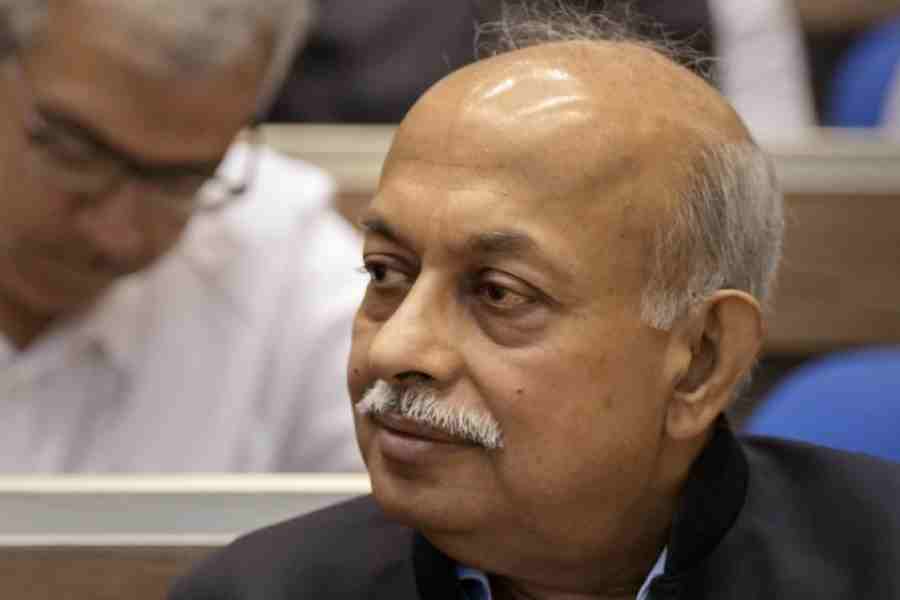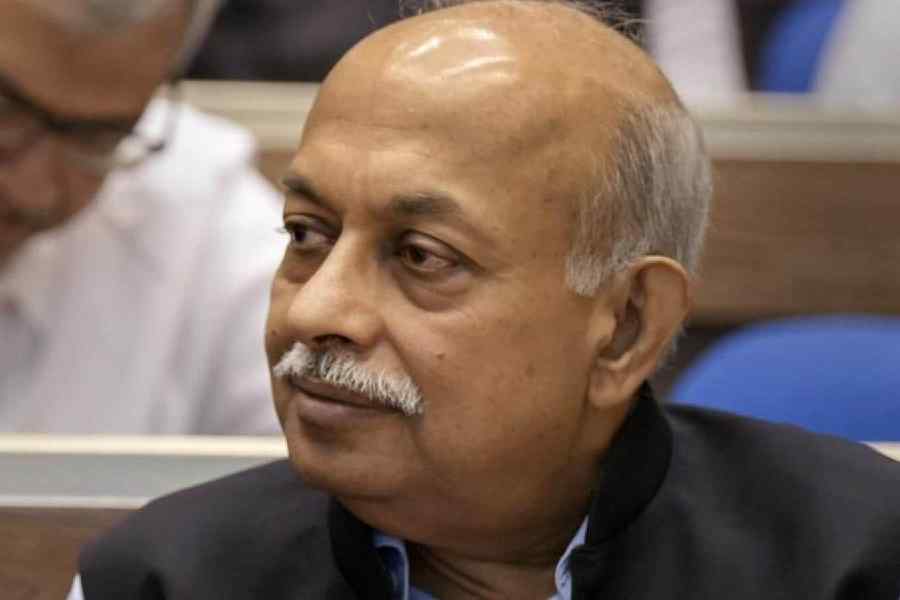The Supreme Court on Thursday extended Enforcement Directorate director Sanjay Kumar Mishra’s tenure till September 15, “taking into consideration the larger public interest”, although the same bench had held a little over two weeks ago that his earlier extension itself was “illegal” and he cannot continue beyond July 31.
The court pulled up the Centre by asking “are you not giving a picture that your department has only one competent person and is it not demoralising the entire force?”
The Opposition across the country has been alleging that the Narendra Modi government was using investigative agencies like the ED to target rivals and critics.
The Centre had sought that Mishra’s tenure be extended till October 15 this year.
Mishra, who retired in May 2020, has got three extensions now, the latest being sought by the Modi government on the ground that his services were required for a review visit by a Financial Action Task Force (FATF) team that would have a bearing on foreign financial aid.
India is a member of the Paris-headquartered FATF, which evolves a common strategy for the 200-odd member countries to curb the global scourge of money laundering.
Senior advocate Anoop George Chaudhary, representing some of the petitioners, disputed the Centre’s claim that Mishra was indispensable, and submitted that the secretary in the revenue ministry was the most crucial person for the FATF meeting. Chaudhary contended that the ED director’s purported role was an excuse to ensure his continuation in the post.
Chaudhary pointed out that matters relating to the FATF are dealt with by the Financial Intelligence Unit of the Department of Revenue, which acts as the central nodal agency and not the ED.
Even before the July hearing, the apex court had said that Mishra’s tenure was extended by the Centre despite an earlier mandamus in a PIL filed by the NGO Common Cause that he shall not be granted any further extension beyond November 2021.
“We want to know, is the entire department full of incompetent people? Let’s say if I am the CJI, will the Supreme Court collapse if I am not able to continue as CJI?” Justice B.R. Gavai, heading the bench, asked solicitor-general Tushar Mehta during a special hearing.
The bench, which included Justices Vikram Nath and Sanjay Karol, however, acceded to the Centre’s request that Mishra’s services were required in view of the FATF visit.
The Mutual Evaluation of India relates to the assessment of technical compliance and effectiveness of the laws being implemented to combat money laundering. The Centre has told the top court that the FATF review team was scheduled to visit India for three weeks from November 3 and “the intricacies of the complex money-laundering investigation may also need to be explained to them, which can be done only by a person with hands-on experience”.
The Centre had submitted that Mishra had been engaged in the preparation of documents and other requirements for the Mutual Evaluation of India since the beginning of 2020 and his continuation “in this arduous and delicate process is essential”.
On Thursday, the court made it clear that it would not entertain any further application by the government for extending his tenure and that the ED director “will cease” to hold office from the “midnight of September 15-16”.
Justice Gavai recalled that in the July 11 judgment the court had clearly ruled that Mishra’s earlier extension was illegal and invalid and as a natural corollary his continuance was illegal from the date of the judgment.
The bench wondered how the Centre could again come with an application for an extension.
Solicitor-general Mehta said Mishra’s continuance was necessary as “continuity will help”. “The grading which will be given by the FATF will decide the country’s eligibility for credit ratings and also then qualify for financial help from the World Bank, etc. I agree no one is indispensable,” Mehta said.
Additional solicitor-general S.V. Raju, appearing for the ED, said there were certain countries that were trying to ensure that Indiafell into the grey list of the FATF, and Mishra’s expertise was required in view of the ensuing visit. Raju said he was refraining from taking the names of the countries that wanted India pushed to the grey list.
Countries on the grey list are those that are actively working with the FATF to address strategic deficiencies in their regimes to counter money laundering, terrorist financing and proliferation financing and are subject to increased monitoring.
Senior advocate Abhishek Manu Singhvi, appearing for some of the PIL petitioners, opposed the extension plea, saying it should not give the impression that the whole country was resting on the shoulders of one person.
Rejecting the argument of the FATF review meeting, he said the entire focus ofthe government was on extending the tenure of the ED director.
Advocate Prashant Bhushan, representing Common Cause, also opposed the government’s plea, saying the present application was nothing but a review petition filed by the Centre against the apex court judgment holding Mishra’s earlier extension as illegal.
The Supreme Court passed the following order: “…In ordinary circumstances, we would not have accepted such an application.… However, taking into consideration the larger public interest, we permit the respondent no 2 (Mishra) to continue till September 15, 2023. We also make it clear that no further application will be entertained, and respondent no 2 will cease to hold the post from the midnight of September 15/16, 2023.”











